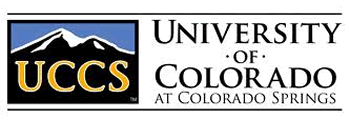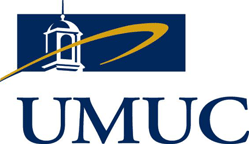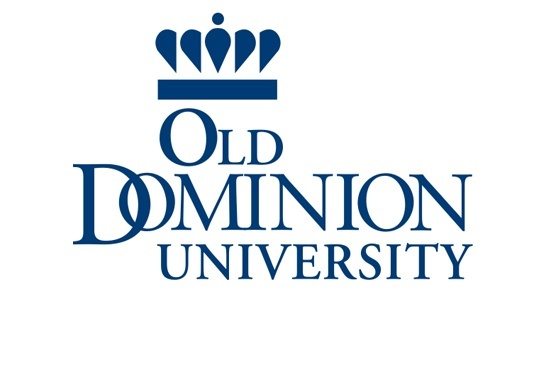The 25 Best Online Graduate Certificates in Cyber Security and Information Assurance

In a fragile economy, finding degree programs that guarantee lasting, upwardly mobile work isn’t easy. Following trends can help, but trends have a habit of shifting quickly when least expected. Fortunately, some fields are clearly trending up, with seemingly no end in sight. For example, even before the widely-covered “hacking” of the 2016 election, the demand for cybersecurity professionals went through the roof. Between 2010 and 2014, there was a 91% growth in cyber security job postings. That’s more than triple the percentage of overall IT jobs created during the same time period. To shift things even further in prospective students’ favor, this demand is nowhere near met through a supply of sufficiently trained and certified graduates. Currently there are 250,000 jobs in cyber security, and much, much more are expected to be created in coming years. One thing to consider is that just over 10% of these jobs are in Maryland, D.C. and Virginia. But as the threat of cyber attacks looms ever larger, both the federal government and private organizations will need to employ cyber security professionals that have been properly trained. 5 out of every 6 cyber security jobs require a degree.
In this list, we’ve compiled some of the fastest, most substantial cyber security certificate programs that exist. All of them can be taken online. Many of them have received an NSA / Department of Homeland Security certification affirming their compatibility with current standards, or other top certifications in the field. Depending on your previous experience, you may want to consider starting with an associate program, or bachelor program in this field, and perhaps eventually moving to a master program in this field. Successful graduates of these programs can expect to work in positions like Security Analyst, Computer Security Specialist, Security Specialist, Information Security Administrator, Information Security Program Director and much more.
1) Dakota State University

Dakota State University is a public school. It was founded in 1881 in Madison, South Dakota. DSU is known for its excellent programs in technology. Its motto is, “Technically, we’re better. DSU affirms this identity with programs in computer and information science, and also offers business, education, natural sciences, liberal arts and more in graduate and undergraduate degrees. There are over 3,100 students. 93% of its students receive financial aid, and 78% of graduate students primarily take their classes online. DSU’s online wing has been frequently honored for its excellence. In 2013, DSU ranked 4th among online schools in the United States on Guide to Online Schools’ rankings that year. It also tied at #32 among top public schools in the 2017 U.S. News & World Report’s midwest rankings.
DSU offers a graduate certificate in Ethical Hacking. The school has received the NSA CAE IA/CD designation for its excellence in the field of information assurance and cyber defense. This graduate certificate program is intended for people working in IT that hold bachelor’s degrees in computer science. It’s 9 credits, mad up in courses in web and network hacking, managing security risks, and more. DSU offers students the latest research, equipment, and nationally respected professors. Its courses are developed by DSU’s virtual lab, which provides the same quality courses to its on campus and distance students. DSU also promises students small class sizes, so they can make sure each graduate receives the attention they need to succeed.
- NSA/CAE Accredited: Yes
- Out-of-State Program Cost: $3996
2) Excelsior College

Excelsior College is a private, non-profit school based out of Albany, New York. It was founded in 1971. Over 36,000 students attend the school. Excelsior was created by the New York State Board of Regents as an external degree institution, and accredited by the Commission on Higher Education of the Middle States Association of Colleges and Schools. Excelsior is known for being extremely permissive in its acceptance of transfer credits from other schools. It has been commended for its flexibility, and tries to educate its students without drastically changing their lives and schedules. EC is also known for taking great care of military veterans and active service members. It’s comparable to Thomas Edison State College in New Jersey and Charter Oak State College in Connecticut, and together the three schools are known as “The Big Three” in the distance learning community.
Excelsior offers a graduate Cybersecurity Certificate for working adults who hold a bachelor’s degree but want a quick, utilitarian path to a management position in cybersecurity. The certificate requires 16 credits earned entirely online, taken where and when applicants desire. Courses cover ethical and legal aspects of cybersecurity, information assurance, IT risk analysis and more. Tuition is $10,320 regardless of residency. This program has received the NSA CAE IA/CD designation for its excellence. 100% of Excelsior’s graduate students take their classes primarily online.
- Homepage
- NSA/CAE Accredited: Yes
- Out-of-State Program Cost: $10320
3) Norwich University

Norwich is the first private military college founded in America. Established in 1819, Norwich is the oldest of six traditional military colleges, and is considered the “Birthplace of ROTC.” Norwich has expanded its long history to offer comprehensive online distance graduate programs. For those looking to work in government cybersecurity, Norwich’s relationship with the Department of Defense could prove invaluable. Over 3,800 students attend Norwich. In a 2014 survey of alumni, 93% recommended Norwich’s online wing. Norwich has recently received grants from the National Security Agency to train the next generation of cyber security experts and information assurance professionals. Its motto is, “I Will Try.”
Norwich offers students graduate certificates in Computer Forensics and Vulnerability Management. They cost $10,650 no matter where students are attending. These programs are for students with backgrounds in networking, programming and operating systems. Students will build indispensable skills in management, investigation, monitoring and protecting against cyber attacks. Both of these certificate options require a case study, research, and lab tasks. Both consist of two 11-week courses and 12 graduate-level credits. It’s also a track to begin Norwich’s Master of Science in Information Security & Assurance program and earn credits towards that master’s degree. Norwich has received the NSA CAE IA/CD designation. 99% of its graduate students take classes primarily online.
- Homepage
- NSA/CAE Accredited: Yes
- Out-of-State Program Cost: $10650
4) Kennesaw State University

(KSU) is a public, co-ed, research university in Georgia. It serves over 35,000 students, and is a member of the University System of Georgia. It was founded in 1963. Its academic programs include business, education, engineering, nursing, physical sciences, criminal justice and sports management. It’s the third largest university in Georgia, and top 50 in the country. Many Georgia residents attend KSU, but 9% of its student body hail from 136 countries worldwide. In 2008, U.S. News polled top college officials on which schools had made the most promising and innovative changes in academics, faculty, students, campus or facilities. Kennesaw State was among 70 colleges that received the most votes. In 2014 U.S. News & World Report ranked KSU as 31st in the South Region among all public universities.
KSU offers a graduate certificate in Information Security & Assurance. This program focuses on and builds skills plus theoretical and practical knowledge needed to protect and examine systems. Students will learn how to discover and deal with threats to the security of information in those systems. The certificate requires a 12 hour core (4 courses) and one elective (3-hours). All coursework within this program requires at least a “C” grade in order to count towards the certificate. The program costs $2,985 for all students, regardless of residency. 44% of KSU’s graduate students primarily take their classes online. It has received the NSA CAE IA/CD designation.
- Homepage
- NSA/CAE Accredited: Yes
- Out-of-State Program Cost: $2985
5) Linfield College

Linfield is a private, four-year school in McMinnville, Oregon. It was founded in 1858. Approximately 2,500 students attend the school, which offers its educational programs through over 150 full-time professors. For six consecutive years, Linfield was named the No. 1 college in the western region by US News & World Report for the Comprehensive Colleges-Bachelor’s category. In the U.S. News and World Report College Rankings for 2007, Linfield College was reclassified and ranked as a Liberal Arts College. This didn’t significantly hurt its rankings, considering the larger pool it was thrown into. In 2011, it was ranked 121st among liberal arts colleges. Linfield has been named by The Princeton Review as one of the Best Colleges in the Western Region. 93% of its professors hold terminal degrees in their fields.
Linfield offers students a graduate Cyber Security and Digital Forensics Certificate. It cites the massive uptick in data breaches and other digital attacks as a great reason to build skills in the field. Graduates of this program could end up working as Computer Forensics Analysts, Cyber Security Analysts, Cyber Security Engineers, Forensic Analysts, Security Investigators and much more. Students should have some experience in computer science before entering this program. Some required classes in this program include
Fundamentals of Information Systems Technology, Systems Administration and Networking Concepts, Digital Forensics, Computer Security and a Capstone Project. Tuition is $8,430 for all students. 100% of its graduate students take classes primarily online.
- Homepage
- NSA/CAE Accredited: No
- Out-of-State Program Cost: $8430
6) Regis University

Regis is a Roman Catholic private, and co-ed university comprised of five schools: Regis College, The Rueckert-Hartman College for Health Professions, the College for Professional Studies, the College of Computer and Information Sciences, and the College of Business and Economics. In 2013, Regis became a top-tier ranked U.S. News & World Report school for the 19th year in a row. Almost 2,000 faculty member serve nearly 9,000 students. Regis has been consistently recognized for its friendliness to military members. In 2014 Regis created its College of Computer and Information Sciences with programs in Computer Science (CPS), Computer Information Systems, and Computer Networking, which are all ABET accredited. ABET is an evaluator of science, computing, engineering and engineering technology programs. Regis offers the only ABET accredited programs of their kind that are offered in the classroom and entirely online.
Regis offers a Cybersecurity Graduate Certificate, which has received the NSA CAE IA/CD designation. This certificate be earned in under a year. Students choose four courses from five class options, including Managing a Secure Enterprise, Securing & Protecting: Sys, Apps, Data, Risk Management, Computer Forensics and Network Forensics. The program is attended for working adults who hold bachelor degrees. Many of the credits in this program are applicable towards a master’s degree in cybersecurity. The program was created in line with the standards of The Committee on National Security Systems (CNSS) 4000, (ISC)2 Eight Domains of Knowledge, ISACA and NIST workforce development. It costs $8,810 for all students. 41% of Regis graduate students take classes primarily online.
- Homepage
- NSA/CAE Accredited: Yes
- Out-of-State Program Cost: $8810
7) East Carolina University

East Carolina University is a public, doctoral/research university based in Greenville, North Carolina. It’s the third largest in the state. ECU serves over 28,000 students, and offers many different health related science majors. ECU’s graduate programs include 85 master’s degrees, 21 doctoral programs and 62 certificates. It has been commended by a number of publications. In 2012, East Carolina was classified by U.S. News & World Report as a National University in its second-tier rankings. In 2010, Forbes ranked the school 36th in its America’s Best College Buys story.
ECU offers a graduate level Information Assurance Certificate, which has been granted the NSA CAE IA/CD designation. Graduates will be prepared to enter the field at a variety of levels, but will build skills necessary for employment as an information security specialist, network security analyst, information security manager, among other positions. This certificate requires 15 semester hours of work, and takes three semesters to complete. Students should have some knowledge of basic data communication, computer networking, and computer operation. Students should have a COMPTIA Network+ certification or Cisco CCNA certification or equivalent course work, which can be earned through ECU courses. In-state tuition is $3735, while out-of-state tuition is $14,032. 54% of ECU graduate students take mostly online classes.
- Homepage
- NSA/CAE Accredited: Yes
- Out-of-State Program Cost: $14032
8) Bellevue University

Bellevue is a private, non-profit university based out of Bellevue, Nebraska. It was founded in in 1966. It was founded in Bellevue, Nebraska. It concentrates on reaching on adult education and outreach. In 2011, 80% of its students were 25 or older. It had over 9,700 students enrolled as of Fall 2015. Bellevue’s online programs have been consistently highly ranked, often falling in the top ten in the nation, according to U.S. News & World Report. It was ranked 7th overall in the nation in Guide to Online Schools’ 2013 Online College Rankings. It has a 31:1 student to faculty ratio. 63% of its students stick with Bellevue after their first year attending the school, and 90% of Bellevue students receive financial aid.
Bellevue offers a Cybersecurity Certificate of Completion at the graduate level, which has received the NSA CAE IA/CD endorsement. The program costs $6,780 regardless of student residency. 80% of graduate students at Bellevue primarily take classes online. Students will learn how to protect computers, networks, programs, data or personal information from parties that would look to gain access to it, pervert it, or destroy it. Sample elective classes include Ethical Hacking, Security Architecture and Design, Computer Forensics, Information Warfare, Cloud Computing and more. Through theory and practical skills, students will learn about how complex systems are targeted, and what can be done to protect them.
- Homepage
- NSA/CAE Accredited: Yes
- Out-of-State Program Cost: $6780
9) University of Colorado Colorado Springs

UCCS is part of the University of Colorado system, and is based out of Colorado Springs. It was founded in 1965. In the fall of 2016, UCCS had over 12,000 undergraduate and 1,808 graduate students. 26% of its student body are minorities. In 2011, USNR ranked UCCS as the 32nd in regional universities in the West. It ranked 6th among public universities in the Master’s Universities-West category, where it’s been in the top ten every year since 2002. In the 2015 USNR UCCS was tied 51st overall in the west among all school. UCCS’ College of Engineering and Applied Sciences has been nationally acclaimed since 2008. UCCS has partnerships with Intel, Boeing, Agilent, Northrop Grumman, Lockheed Martin national laboratory Sandia National Laboratories), and the U.S. military.
UCCS offers a Graduate Security in Security Intelligence. It’s received the NSA CAE IA/CD endorsement. The cost of the program is $7665 for all students. 32% of graduate UCCS students take classes primarily online. Required classes include National Security Intelligence, Democracy, Policy and Security, Counterterrorism Intelligence and Analytical Intelligence Methodologies. Students need a bachelor degree to enter the program, and must receive a B- in all certificate classes. The program tackles the intelligence history, and the philosophy behind gathering and protecting intelligence. Students will also learn how intelligence failures occur by studying historical record. The program also explores how the Department of Homeland security is effected by the gathering and protection of sensitive intelligence.
- Homepage
- NSA/CAE Accredited: Yes
- Out-of-State Program Cost: $7655
10) Nova Southeastern University

NSU was founded in 1964 in Fort Lauderdale, Florida. Its motto is, “engage, inspire, achieve.” This nonprofit school features 18 colleges, featuring 175 programs and 250 majors. It offers degrees in law, business, osteopathic medicine, allied health, pharmacy, dentistry, optometry, physical therapy, occupational therapy, and nursing. Over 23,000 students attend Nova, and it has produced over 170,000 alumni. Its inaugural class in 1964 was of just 17 students. NSU is a noted research university that has been praised for its community engagement. It was ranked 214th in the nation by U.S. News & World Report. In 2016, NSU was picked by Times Higher Education and World University as one of 20 global universities that could take on elites and become a world renowned university by 2030.
NSU offers a graduate certificate in Information Security Management that has received the NSA CAE IA/CD certification. It requires 15 credit hours to complete, and can be finished in 12-16 months. This program is offered both on campus and entirely online. Federal civilian and military personnel can attend the program through government sponsorship, or take certain courses without going through the entire program. Sample classes include Fundamentals of Security Technologies, Information Systems Auditing, Information Security Governance, Information Security Operations Management. This program costs $11,625 for all students. 43% of NSU graduate students primarily take classes online.
- Homepage
- NSA/CAE Accredited: Yes
- Out-of-State Program Cost: $11625
11) American Public University System

The American Public University System is an online, for-profit institution composed of the American Military University and American Public University, owned by American Public University Inc. It was established in 1991, and operates from Charles Town, West Virginia. Over half its student body in 2016 said they were actively serving in the military. That’s not a requirement for attending APUS, but it demonstrates its commitment to veterans and active military members. Over 98,000 students attend the school. APUS offers associate, bachelor’s and master’s degrees, in addition to dual degrees, certificate programs and learning tracks. It has a 20:1 student to faculty ratio. It has been celebrated as a “Best for Vets College” by The Military Times since 2015.
AMU offers an Information Systems Security graduate certificate. The goals of the program are to “secure network design, development of security policies and programs, cryptography, business continuity planning, and other skills necessary to protect organizational systems from growing sophisticated attacks.” It’s perfect for graduate students who want to build skills in these areas without having to commit to a longer degree program. The program prepares students to earn the Certified Information Systems Security Professional (CISSP) certification, an important certification in international information security. Tuition for the certificate is $6,300 for all students. 100% of graduate students take classes primarily online.
- Homepage
- NSA/CAE Accredited: No
- Out-of-State Program Cost: $6300
12) University of Maryland-University College

UMUC is a part of the University of Maryland system. It was founded in 1947. UMUC serves over 90,000 students globally. UMUC gives students access to 120 academic programs in online classes, including bachelor, masters, and doctoral degrees. As a member of the University System of Maryland, UMUC is connected to eleven different public universities. Like AMU, UMUC has been honored by The Military Times. In 2015 it was ranked #1 in The Military Times Best for Vets: Colleges list of top online/nontraditional schools. The Military Times determines its rankings through perusing U.S. Department of Education research on student success, academic quality, university culture, student support, and academic policies. It assesses hundreds of schools to create its rankings.
UMUC offers a graduate certificate in Cybersecurity Technology. It requires 18 credits, but students can transfer into up to 6 applicable credits. It costs $12,492 for all students. The program earned the NSA CAE IA/CD certification. Required courses include Communicating, Problem Solving, and Leading in Cybersecurity, Cyberspace and Cybersecurity Foundations and Prevention of Cyber Attack Methodologies. The certificate is designed for mid career professionals, or those new to the field, but it’s recommended that students take some entry level computer science classes before entering the program. Students will increase their leadership skills, ability to recognize system vulnerabilities, cyber attack prevention and apply their cyber security tactics and knowledge to a wide variety of databases and indispensable infrastructure.
- Homepage
- NSA/CAE Accredited: Yes
- Out-of-State Program Cost: $12492
13) Villanova University

Villanova is a privately owned research university located in Radnor Township, Pennsylvania. It was founded by the Order of Saint Augustine, and was founded in 1842. It’s still a member of the Augustinian Secondary Education Association. In 2017, USNR ranked Villanova 50th among the best National Universities in the U.S. This was in addition to USNR ranking Villanova firsts for a decade in its Best Masters Universities-category, Northern Region. USNR also called Villanova the second “Best Value School” and 4th fin “Best Undergraduate Teaching” in the Best Masters Universities-category, Northern Region, in 2016. The Villanova School of Business was ranked No. 1 in the U.S. in Bloomberg Businessweek ‘s 2016 rankings of undergraduate business schools. Villanova serves over 10,000 students. Among its graduate students, 35% take classes primarily online.
Nova offers a Master Certificate in Information Security Management. It’s intended for professionals who either work in, or would like to break into cyber security. They also offer two separate, related certificates including a government security track in information security. These certificates prepare students to take certification tests in line with Department of Defense Directive 8570.1, including CompTIA Security+™, CISSP® and SSCP®, and CAP®, which satisfies Federal Information Security Management Act (FISMA) requirements. The government security track specifically prepares students to meet CNSS National Standard 4011, which handles intelligence activities, military command and other crucial national security issues. This certificate program costs $6,595 for all students, no matter where they’re located. There are three required classes: Essentials of IS Security, Mastering IS Security+ and Advanced Information Assurance and Security.
- Homepage
- NSA/CAE Accredited: No
- Out-of-State Program Cost: $6595
14) Iowa State University

Iowa State University was founded in 1858. It’s a public research university and a member of the Association of American Universities (AAU), an association of 62 premier North American research universities. Iowa State has been named an “Innovation and Economic Prosperity University,” which only 54 public universities in America have received. Iowa state offers 100 bachelor’s degree programs, 112 master’s degree programs, 83 at the Ph.D.’s, and a professional degree in Veterinary Medicine. In 2016, ISU ranked 111th in the U.S. News & World Report ranking of national universities. ISU is also the birthplace of the first electronic digital computer, invented in the late 30’s and early 40’s. ISU was also critical in developing nuclear weapons while working on the Manhattan project.
ISU offers an Information Assurance Graduate Certificate, which can be completed in as little as 9 months by taking two courses each semester. This program was intended for students who have a bachelor’s degree in a related field, or a year of experience in IT. The program aims to build students’ engineering skills, understanding of information security infrastructure, build an ethical outlook on technology and boost their understanding of cyber security-related policies and strategies There are three required courses, Advanced Computer Networking, Computer Security and Information Warfare. The electives for this certificate (you choose one) are Cryptography, Ethical and Legal Issues in Computer Security, Steganography, Forensics and Wireless Security. Tuition is $6,864 for all students. 21% of ISU’s graduate students take their classes primarily online.
- Homepage
- NSA/CAE Accredited: Yes
- Out-of-State Program Cost: $6864
15) University of Dallas
The University of Dallas was founded in 1956. It’s a private, independent Catholic university located in Irving, Texas. It’s known for a high participation rate in international programs, and its excellent reputation both as a Catholic higher educational option and academic majesty. The school offers programming through its Braniff Graduate School of Liberal Arts, Constantin College of Liberal Arts, Satish & Yasmin Gupta College of Business, and the School of Ministry. It offers certificates, bachelor degrees, master degrees and a doctoral degree in three concentrations. Forbes ranked the University of Dallas at 225th in America in its 2017 “America’s Best Colleges” list.
UD offers a graduate certificate in Cybersecurity. It encompasses 6 classes and 18 credit hours. The classes are Data Protection, Compliance and Legal Issues, Operational Cybersecurity Management, Strategic Cybersecurity Management, Penetration Testing and Vulnerability Assessment, and Digital Forensics. Students will learn how to protect information, work with organizations that are vulnerable to attacks, investigate attacks and determine where weak spots are in organizational data storage. The program costs $22,500 for all students. 29% of graduate students take classes primarily online. This program has earned the NSA CAE IA/CD certification.
- Homepage
- NSA/CAE Accredited: Yes
- Out-of-State Program Cost: $22500
16) Old Dominion University

Old Dominion is a public, co-ed research university. It was founded in 1930 and is based out of Norfolk, Virginia. ODU offers 168 undergraduate and graduate degree programs to over 24,000 students. It is one of the largest online distance learning providers in the nation. Old Dominion University has well over 100,000 alumni in all 50 states and 67 countries worldwide. The school gets its name from a nickname for Virginia, “The Old Dominion,” which King Charles II called it because of its loyalty to the crown during the English Civil War. ODU started its distance learning program in 1994 through satellite, and now gives students access to 60 undergraduate and graduate programs through video streaming, satellite, 2-way, web conferencing, and the Internet. Depending on their choice of study, students can take ODU classes online or at one of its 50 partnership locations. ODU also has programs that are designed for military service members while on deployment.
ODU offers an online graduate certificate in Cyber Security. It can be completed in as little as a year by taking two classes in subsequent semesters. The courses in this program can also apply to a Master’s in Computer Science at ODU. This program empowers and educates students to work as Computer Systems Analysts, Information Security Analysts, Business Intelligence Analysts, Software Developers and Computer Programmers. The program costs $5,952 for out of state students, and $6,456 for Virginia residents. 41% of graduate students take their ODU classes primarily online.
- Homepage
- NSA/CAE Accredited: No
- Out-of-State Program Cost: $6456
17) University of Denver

The University of Denver is a four-year, independent private school. It’s the oldest university in the Rocky Mountains, founded in 1864. It offers programs and degrees in law, business, music, social work, education, and much, much more. DU has grown alongside the city of Denver, booming in the post-World War II migration to Colorado. It now serves nearly 11,800 students. The University of Denver was ranked 86th among all public and private national universities in the U.S. News & World Report 2015-2016 ranings. The University College University of Denver is a school of professional and continuing studies that DU created in order to offer graduate certificates and master’s degrees in online formats.
DU offers a graduate certificate in Information Security. It’s earned the NSA CAE IA/CD certification. The tuition is $15,840 for all students. 20% of graduate DU students take classes primarily online. This program was ranked by USNR in the top 50 in Best Online Graduate Information Technology Programs. At DU, certificates can be applied to whenever, but there are four acceptance periods annually. This program is aimed at making each graduate an “expert in determining Return on Security Investment (ROSI).” Students will learn to “develop security policies and procedures that protect organizations from internal and external threats and learn to lead the strategic, planning, and management efforts of safeguarding information and ensure continuity of operations. You’ll learn how to analyze security needs, provide effective security solutions, secure a network and serves and handle information security incidents.”
- Homepage
- NSA/CAE Accredited: Yes
- Out-of-State Program Cost: $15840
18) Boston University

BU was founded in 1839. It’s a private research university, and one of Boston’s largest schools, employers. Iver 33,000 students attend the school. Graduates of BU have gone on to become Nobel Laureates, and winners of Pulitzer Prizes, Academy Awards, Emmy’s and Tony’s. U.S. News & World Report put it 39th among national universities and 32nd among global universities for 2017. It also placed many BU programs very highly on its lists, including 10th among public health graduate schools, 12th among social work schools, tied for 20th among law schools, tied for 29th among medical schools (research), 35th among engineering schools, tied for 41st among business schools, and 45th among education schools. In 2016 BU was ranked 89th overall in the world by QS World University.
BU offers a Graduate Certificate in Information Security. It requires 16 credits, and can be completed in 8-12 months. The courses required are Database Security, IT Security Policies and Procedures, Network Security, Digital Forensics and Investigations, Mobile Forensics and Enterprise Information Security. Graduates will leave the program with advanced knowledge of information security, related governance, network security and cryptography. It costs $13,760 for all students. 17% of graduate students take classes primarily online at BU. It has earned the NSA CAE IA/CD certification.
- Homepage
- NSA/CAE Accredited: Yes
- Out-of-State Program Cost: $13760
19) University of Washington-Seattle Campus

The University of Washington was founded in 1861 in Seattle, Washington. It’s one of the oldest colleges on the West Coast, and has ancillary campuses in Tacoma and Bothell. UW is a member of the Association of American Universities, and has over 46,000 students. It offers bachelor’s, master’s and doctoral degrees in 140 departments including Education, Engineering, Law, Medicine, Oceanography, Pharmacy, Social Work and many others. Its award-winning alumni have won seven Nobel Prize laureates, two Pulitzer Prize winners, and the school has produced winners of most prestigious awards in arts and science. U.S. News & World Report ranked UW 16th among public universities in its 2016 rankings. Both its programs and the school itself consistently rank in the top 100 in rankings from USNR, Washington Monthly, Times Higher Education World University Rankings, World Reputation Rankings and QS World University Rankings, both in America and worldwide.
UW offers a graduate Certificate in Cybersecurity that has received the NSA CAE IA/CD certification. The program takes 8 months to complete, and requires evening work. It costs $3,525 for all students. 4% of UW’s graduate students take classes primarily online. This program focuses on cybersecurity problems and gives students practical experience in solving them and combating cyber threats. Students will investigate attacks, learn how to protect from them while considering the entirety of an organization’s IT operations. It prepares students for professional security certification exams, like the Systems Security Certified Practitioner (SSCP) and Certified Information Systems Security Professional (CISSP).
- Homepage
- NSA/CAE Accredited: Yes
- Out-of-State Program Cost: $3525
20) Webster University

Webster is a non-profit private university based out of Webster Groves, Missouri. It was founded as a Catholic’s women’s college in 1915, but has grown into an independent, non-denominational university with multiple branch locations across the United States. It offers undergraduate and graduate programs in liberal arts, fine and performing arts, teacher education, business and management. Webster serves over 22,000 students, which represent 50 U.S. states and 140 countries. The university has produced about 170,000 graduates globally.
Webster offers a graduate certificate in Cybersecurity-Threat Detection. It takes 12 credit hours to complete. The program costs $9,360 for all students. This certificate gives students the information and practical skills to satiate the unchecked demand of corporate and governmental organizations for cybersecurity professionals. Students will learn to assess and prevent cybersecurity threats, the syntax of the field, and learn about a variety of related roles and responsibilities. Required courses include Introduction to Cybersecurity Cybersecurity Infrastructures Cybersecurity Law & Policy and Cybersecurity Threat Detection. 32% of Webster’s graduate students take classes primarily online.
- Homepage
- NSA/CAE Accredited: No
- Out-of-State Program Cost: $9360
21) Saint Leo University

This private, non-profit university was founded in St. Leo, Florida. It was established in 1889. It’s affiliated with the Holy Name Monastery, a Benedictine convent, and Saint Leo Abbey, a Benedictine monastery. In 2017, the school was named a Best Regional University–South and Best Value University–South by U.S. News & World Report. It also ranked on U.S. News & World Report’s list of 2017 Best Online Bachelor’s Programs and Best Online Bachelor’s Programs for Veterans. It serves over 16,000 students. Saint Leo was one of the first American universities to offer distance learning opportunities to students. It began its distance learning program by offering education to military service members in 1973.
Saint Leo offers an online only graduate certificate in Information Security Management. It requires 18 credit hours. The classes in the certificate are Management of Information Security, Systems Security Management, Network Security Management, Disaster Recovery Management, Web Security Management, and Strategic Planning for Information Security. Saint Leo also offers a Master’s in Cybersecurity, which this program is a good preparation for. This certificate costs $13,410 for all students. 77% of Saint Leo students take their classes primarily online.
- Homepage
- NSA/CAE Accredited: No
- Out-of-State Program Cost: $13410
22) University of Massachusetts-Lowell
The University of Massachusetts Lowell is a public research university that serves approximately 18,000 students. It’s the second largest public university in the state behind UMass Amherst. The school offers 122 bachelor’s, 43 master’s and 36 doctoral degree programs, with esteemed courses in engineering, criminal justice, education, music, science and technology. U.S. News & World Report ranked UMass Lowell at 152 among top-tier National Universities list in 2016. UMass Lowell is one of only six schools to rank higher on that list each year since 2010. It gained 27-spots in the past five years, second-fastest in the nation. USNR also ranked it 78th among top public universities and second in the state. Forbes rated UMass Lowell the 10th best value among all universities and colleges nationwide in 2013, and fourth in value among non-military academies.
UMass Lowell offers an online graduate certificate in Network Security. The program is intended for Systems Administrators, Network Managers and other IT professionals with a related undergrad degree. The program is intended to advance student skills while dealing with network threats, data encryption, wireless network security, data authentication, data recovery and forensics, network architecture and emerging network technologies. Courses in the certificate include Network Infrastructures, Computer Network Security (which will be available this fall), Digital Forensics and Secure Mobile Networks. The school allows you to take a course of the program without enrolling in it, so you can get a sense of whether it’s a good fit for you. The certificate program costs $8,625 for all students. 39% of graduate students at UMass Lowell take most classes online.
- Homepage
- NSA/CAE Accredited: No
- Out-of-State Program Cost: $8625
23) Oklahoma State University-Main Campus

OSU is a coeducational public research university. It was founded in 1890 and operates out of Stillwater, Oklahoma. Over 25,000 students attend the school, but there are over 35,000 students in the Oklahoma State University System, which encompasses several other schools. The Princeton Review listed OSU as one of 120 “Best Western Colleges” for 2011, and one of 50 “Best Value Colleges – Public” for 2010. Currently, USNR ranks OSU as tied at 152nd among national universities, 78th in top public schools and 91st among best undergraduate engineering programs. It’s also known as a top veterinary school.
OSU offers a graduate certificate in Information Assurance. It has earned the NSA CAE IA/CD certification. This program requires 15 credits. It’s focus is on helping students understand the intricacies and functions of computer networks, and how unauthorized entrants approach them. Securing systems, and investigating attempts to break into them are also at the forefront. Applicants need to have a bachelor’s degree in a related field, and have at least a 3.0 GPA. Neither the GMAT or GRE is required for this certificate. This program costs $5,520 for in-state students, and $13,032 for out-of-state students. 17% of OSU’s graduate students take classes primarily online.
- Homepage
- NSA/CAE Accredited: Yes
- Out-of-State Program Cost: $13032
24) Worcester Polytechnic Institute

This private research university was established in 1865. It’s based out of Worcester, Massachusetts, and focuses on instruction and research of technical arts and applied sciences. It is one of the countries’ first engineering and technology universities. Students have access to 14 academic departments with over 50 undergraduate and graduate degree programs in science, engineering, technology, management, the social sciences, and the humanities and arts. WPI’s faculty and students are known for their research in biotechnology, fuel cells, information security, surface metrology, materials processing, and nanotechnology. Over 6,000 students attend the school. Its motto is “theory and practice” (from the German, “Lehr und Kunst”). WPI is currently ranked as a tier-one (top 25%) university according to USNR. BusinessWeek has ranked WPI first overall in the country for its part-time Master of Business Administration (MBA) program, as well as first overall for student satisfaction.
WPI offers a graduate certificate in Cybersecurity online. It has earned the NSA CAE IA/CD certification. WPI is doing important, cutting edge research involved in cybersecurity, and its programming reflects its findings. Required courses include Computer and Network Security, Software Security Design and Analysis, Operations Risk Management, Special Topics: Intrusion Detection, Special Topics: Digital Forensics and Case Studies in Computer Security. Tuition for this certificate is $26,226 for all students. 21% of graduate students at WPI take classes primarily online. Students will learn how to protect organizations, defend digital information from attacks, and coordinate with technical security teams on these issues.
- Homepage
- NSA/CAE Accredited: Yes
- Out-of-State Program Cost: $26226
25) California State University – San Bernardino

The California State University system encompasses over 30 locations, nearly 480,000 students and 50,000 staff members. It is among the largest school systems in America. The system began in 1857, and is known for its teaching, engineering, business, information technology and public administration degrees, among much, much more. In 2013, CSU changed its delivery method for online education. It approved over 30 courses across its system. This means that any student enrolled at any CSU campus could take classes online that were offered at a different campus. Its San Bernardino campus was founded in 1965, which is the location the system’s cyber security certificate is offered through.
CSU San Bernardino gives students access to a Systems Security Certified Practitioner certificate that has earned the NSA CAE IA/CD certification. At $1,595, it’s the most affordable certificate on this list. 9% of CSU grad students take their classes primarily online. The program is intended for students who want the SSCP certification or are looking to work as a network administrator or a security administrator. The program covers Introduction, Authentication and Access Control, Risk, Response and Recovery and Cryptography, Networking and Malware and Monitoring and Security Policy. It requires 80 hours and can be completed in 6 months.
- Homepage
- NSA/CAE Accredited: Yes
- Out-of-State Program Cost: $1595
